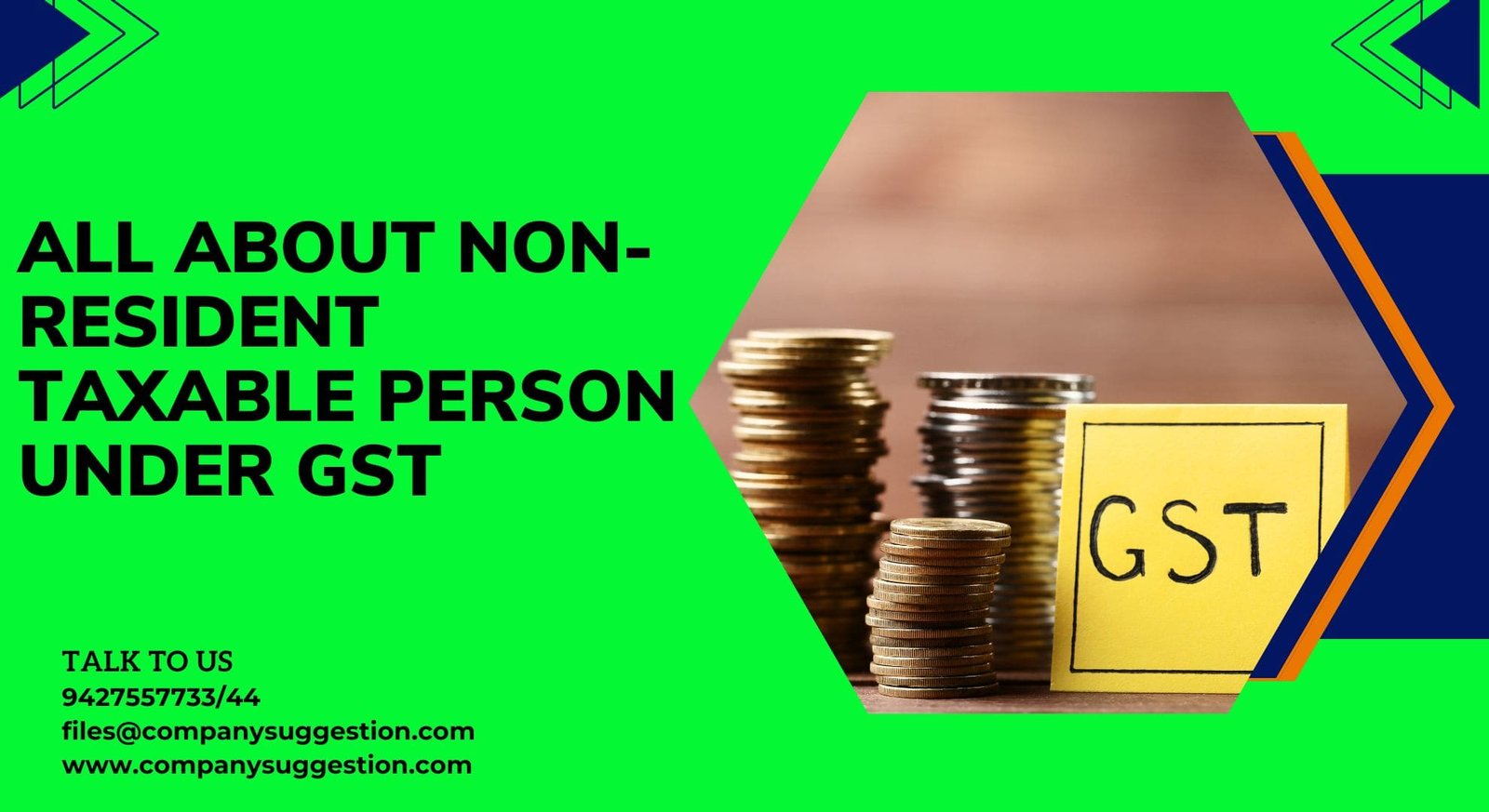GST applicability pertains to the regulations and guidelines governing the imposition of the Goods and Services Tax on the exchange of goods and services in India. GST, a comprehensive indirect tax, has replaced various other indirect taxes like Central Excise Duty, Service Tax, and Value Added Tax (VAT). It is applicable to all enterprises participating in the supply of goods or services in India, provided they meet specified turnover criteria.
Implemented in India since July 1, 2017, GST is a transformative tax reform that is levied on the supply of goods and services nationwide. The GST system aims to be straightforward, transparent, and user-friendly, though it may appear intricate to those unfamiliar with the tax structure. In this discussion, we will delve into the fundamental aspects of GST applicability.
Determining Who Must Register for GST:
Under GST regulations, any entity involved in the supply of goods or services with an annual turnover of Rs. 20 lakhs or more is obligated to register for GST. However, businesses operating in the North Eastern states and hill states must register if their turnover exceeds Rs. 10 lakhs.
Additionally, certain businesses are mandated to register for GST regardless of their turnover. These include:
- Businesses engaged in inter-state supplies
- E-commerce operators
- Casual taxable persons
- Non-resident taxable persons
- Entities liable to deduct or collect tax (TDS/TCS)
GST Rate Structure:
In India, the Goods and Services Tax employs a tiered rate system, with rates set at 5%, 12%, 18%, and 28%. Certain goods and services either enjoy exemption from GST or are subjected to lower tax rates. The determination of these rates is overseen by the GST Council, a body comprising the Finance Ministers of the states and the Union Finance Minister.
Composition Scheme:
Within the GST framework, small-scale taxpayers with an annual turnover of up to Rs. 1.5 crore can choose the Composition Scheme. This initiative allows such businesses to pay taxes at reduced rates, thereby lightening their compliance burden. However, entities enrolled in the Composition Scheme are ineligible to claim Input Tax Credit (ITC) for their purchases.
Input Tax Credit (ITC):
A fundamental aspect of GST is the Input Tax Credit (ITC) mechanism. This provision enables businesses to assert credit for the taxes paid on their acquisitions, utilizing it to offset their GST liability. This mechanism prevents double taxation and ensures that the tax burden is not transferred to the end consumer.
Federal Taxation System:
India, operating as a quasi-federal state, possesses the authority to impose and collect taxes through legislative measures by both the central and state governments. GST, a comprehensive tax system, has replaced several state and central levies. The following is a compilation of the taxes that have been superseded:
- Value-added tax (VAT) or sales tax
- Octroi
- Entertainment tax
- Tax on lottery, betting, or gambling
- Purchase tax
- Luxury tax
- Service tax
- Additional excise duty
- Central excise duty, among others
GST Registration Significance:
The process of GST registration plays a crucial role in enhancing the state’s ability to efficiently identify indirect taxpayers and ensure tax compliance within the economy. Registration for GST involves obtaining a unique number from the relevant tax authorities, enabling businesses to collect taxes on behalf of the government and claim Input Tax Credit for taxes paid on incoming goods.
Types of GST and its Applicability
IGST (Integrated Goods & Services Tax): IGST is a tax applicable to the movement of goods and/or services between different states and for imports and exports. Governed by the IGST Act, the Central Government is responsible for its collection. Collected taxes are subsequently distributed among the respective states.
SGST (State Goods and Services Tax): SGST is imposed on transactions that occur within the boundaries of a single state. It is applied to both goods and services. The State Government is the collector of SGST, and the revenue generated is exclusively claimed by the respective state.
CGST (Central Goods and Services Tax): CGST is another form of Goods and Services Tax, specifically designed for intrastate transactions. Similar to SGST, the CGST Act oversees the treatment and imposition of CGST, with the Central Government entrusted with its collection.
UTGST (Union Territory Goods and Services Tax): UTGST mirrors SGST but is applicable to Union Territories in India. The UTGST Act regulates the taxation of goods and services in territories such as Andaman and Nicobar Islands, Chandigarh, Daman Diu, Dadra and Nagar Haveli, and Lakshadweep. Revenue from UTGST is collected by the respective Union Territory government.
Which documents do you need?
- Recent passport-size photographs
- Valid identity proof (options include Aadhar Card, Driving License, or Passport)
- Evidence of the office address
- Bank particulars (statement, canceled cheque, or passbook)
- Partnership deed for entities operating as partnership firms
- Certificate of Incorporation for entities registered as Private Limited Companies, Limited Liability Partnerships (LLP), or One Person Companies (OPC)
Who is not eligible for GST registration?
- Certain products like petrol and alcohol meant for human consumption are exempt from GST.
- Goods supplied to Special Economic Zones (SEZ) developers are also not subject to GST.
- Items listed under the zero-rated category are not liable for GST as they have a fixed tax rate of zero percent.
- Public transport services, metered cabs, auto-rickshaws, and metro services are exempt from GST.
- The shipping of agricultural produce and goods outside of India is not subjected to GST.
- Transportation of goods with a total cost below Rs. 1500 is exempt from GST.
- Governmental and foreign diplomatic services are also excluded from GST.
Conclusion:
To sum up, Goods and Services Tax stands as an all-encompassing indirect tax that has streamlined India’s tax structure. It has not only simplified the taxation system for businesses but has also enhanced transparency in the overall tax framework. It becomes crucial for businesses to grasp the fundamental principles of GST application, ensuring adherence to the law and steering clear of potential penalties or legal complications.
If you have any doubt regarding this, then you can send your doubts on companysuggestion and our team of experts will guide you. Your queries are welcome, and we’re here to provide the information you need.












